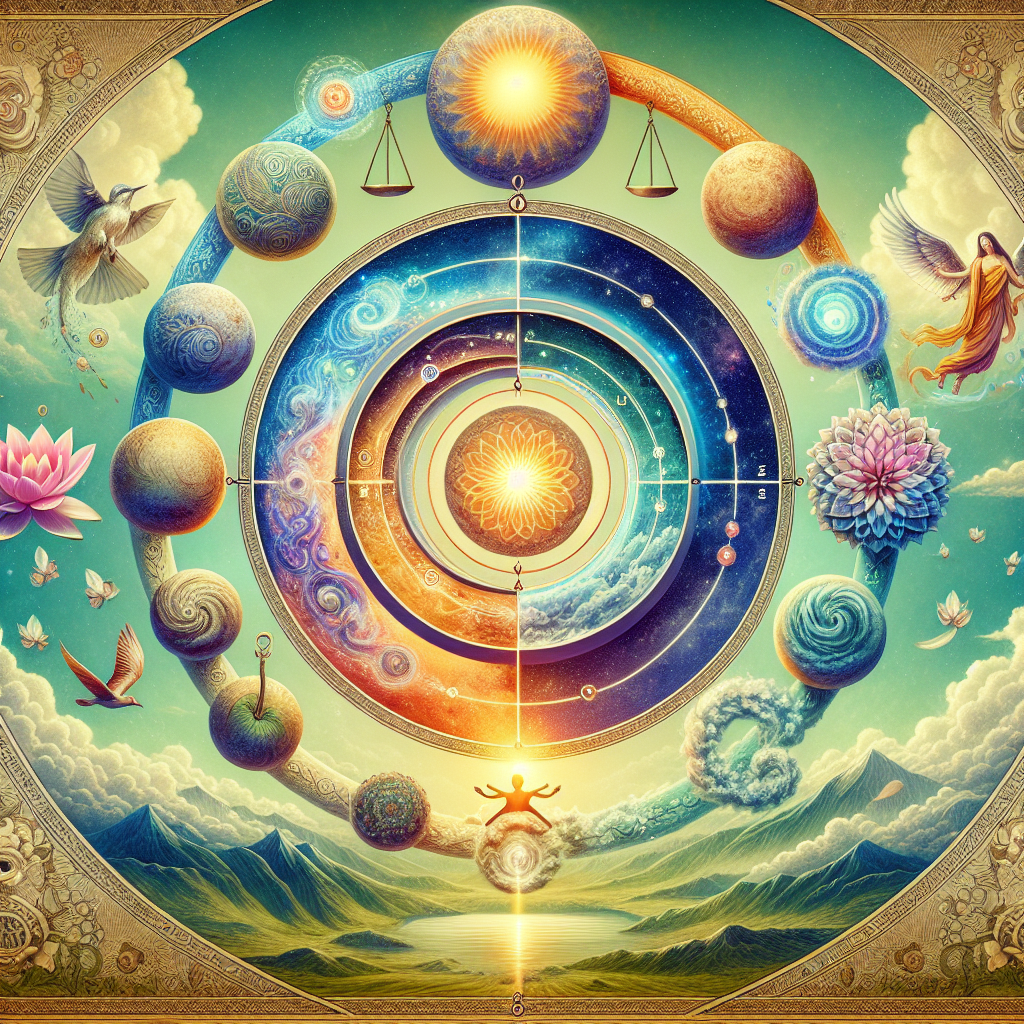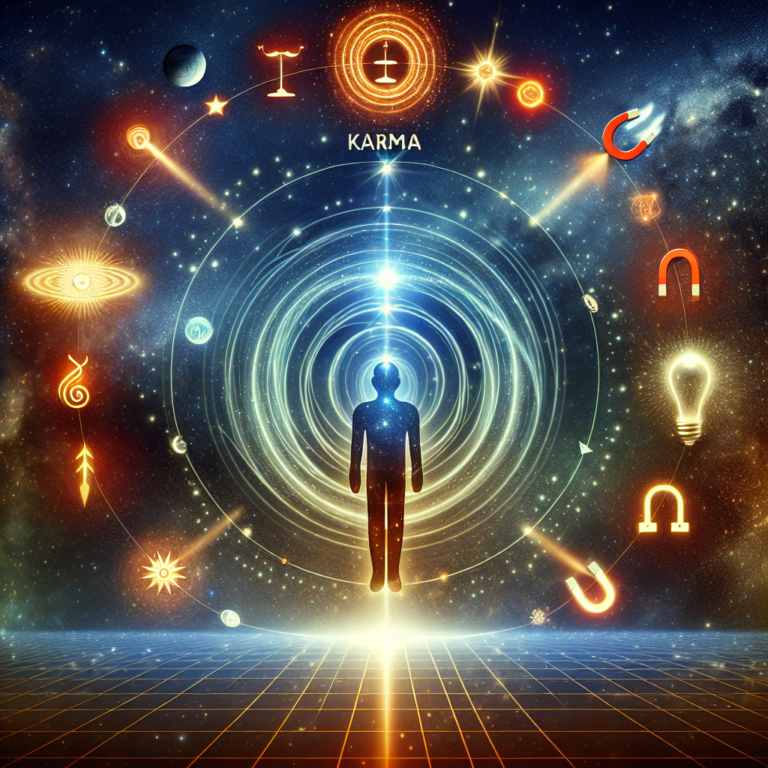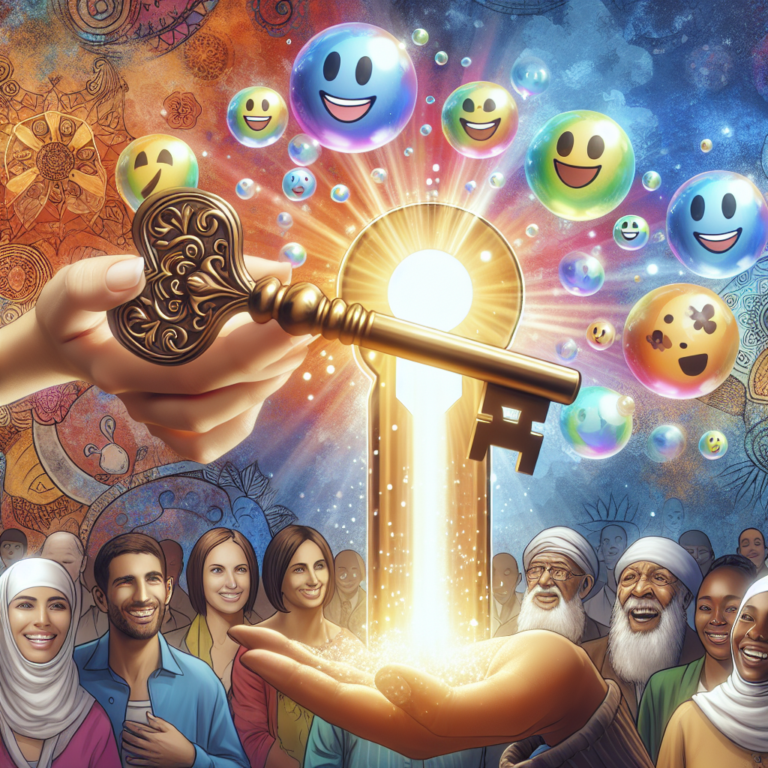The concepts of karma and reincarnation offer profound insights into the nature of existence, human behavior, and the universe’s workings. These beliefs stem primarily from Eastern spiritual philosophies, particularly Hinduism and Buddhism, and have captured the attention of many seeking to understand the cycle of life and death. This article delves deep into the interwoven concepts of karma and reincarnation, exploring their implications for personal growth and spiritual development.
The Nature of Karma
At its core, karma refers to the law of cause and effect that governs the universe. The term “karma” originates from the Sanskrit word "karman," meaning "action" or "deed." In spiritual contexts, karma encompasses the idea that every intentional action—whether physical, verbal, or mental—produces a corresponding reaction or result in the individual’s life. This principle operates in tandem with the belief in moral responsibility; individuals are accountable for their actions and the consequences that arise from them.
Karma is not merely a matter of punitive justice; it encompasses the entirety of life experiences that contribute to an individual’s evolution. Good actions lead to positive outcomes, which may manifest as favorable life circumstances, enhanced relationships, or inner peace. Conversely, negative actions result in adverse consequences, creating obstacles or suffering in one’s life. However, it’s crucial to understand that karma transcends simplistic notions of reward and punishment. It represents a complex web of experiences shaped by intentions, emotions, and circumstances.
Karma has both immediate effects and long-term implications, influencing current lives and future incarnations. This interconnectedness highlights the importance of mindfulness in one’s actions and thoughts, as they can reverberate through time and space, affecting not just oneself but the greater community and even the universe.
The Reincarnation Cycle
Reincarnation, or rebirth, is the belief that the soul, or consciousness, undergoes a series of transitions through various physical forms after death. This cycle of birth, death, and rebirth—known as samsara—is a fundamental concept in Hinduism and Buddhism. The soul is believed to navigate through numerous lifetimes, acquiring experiences and lessons that contribute to its spiritual evolution.
The process of reincarnation is governed by karma. The quality of one’s actions in previous lifetimes determines the circumstances of future incarnations. This nexus of karma and reincarnation underscores the idea that life is not merely a singular journey but rather a continuum of experiences designed to promote growth and understanding. In this framework, death is not an end, but a transformation; a shedding of the physical form while the soul embarks on new adventures and epiphanies.
Within this cycle, individuals may face various challenges, joys, and growth opportunities that reflect their karmic lessons. The notion of "paying off karma" often and mistakenly equates to enduring suffering in one’s current life for past misdeeds. However, it’s essential to recognize that each challenge serves a purpose, ultimately guiding the soul towards enlightenment and liberation from the cycle of reincarnation, known as moksha in Hinduism and nirvana in Buddhism.
The Interrelation of Karma and Reincarnation
Understanding the relationship between karma and reincarnation empowers individuals to take ownership of their spiritual journey. As people navigate their lives, their actions create energy that reverberates throughout their experiences—shaping personality, choices, relationships, and destiny. This creates a feedback loop where actions feed into future circumstances, embedding the importance of conscious living and ethical behavior.
Moreover, both concepts serve as a source of comfort for many. The belief in reincarnation allows individuals to view their current challenges as part of a larger journey rather than isolated misfortunes. The idea that life experiences are connected to prior actions can inspire a sense of empowerment—one can actively contribute to positive outcomes through intentional behavior.
Spiritual philosophies teach that understanding karma and reincarnation encourages compassion. Recognizing that everyone is on their unique journey, influenced by their past actions, fosters a sense of empathy toward others, inviting individuals to approach relationships and situations with kindness rather than judgment.
The Path to Liberation
The ultimate goal within many spiritual frameworks that include karma and reincarnation is liberation—or moksha in Hinduism and nirvana in Buddhism. Liberation refers to the release from the cycle of samsara, ceasing the repeated cycle of birth and death. By confronting and resolving karmic lessons, individuals earn the opportunity for transformation and transcendence.
Achieving liberation involves self-awareness, self-examination, compassion, and ethical living. Engaging in practices that promote mindfulness—such as meditation, yoga, and acts of service—can facilitate a deeper understanding of one’s actions and their consequences, ultimately guiding the soul closer to liberation.
Furthermore, cultivating virtues like love, forgiveness, and non-attachment can dissolve negative karmic patterns. As individuals tread this path, they embrace the interconnectedness of existence, recognizing that every action has a ripple effect on the collective human experience.
Conclusion
The cycle of life, embodied by the principles of karma and reincarnation, presents a holistic understanding of our place within the universe. These concepts remind us of the importance of mindfulness, ethical living, and compassion towards oneself and others. By recognizing the significance of our actions and the paths we traverse, we can facilitate profound personal growth and journey toward the ultimate goal of liberation.
As you consider these insights, remember that life’s complexities invite exploration and reflection rather than rigid adherence to any dogma. Engaging authentically with these concepts can foster a deeper connection to the self, others, and the expansive universe that embraces us all.
FAQs
What is karma?
- Karma is the spiritual law of cause and effect, where every action produces a corresponding result. It emphasizes moral responsibility and the interconnectedness of actions and consequences.
What is reincarnation?
- Reincarnation is the belief that the soul undergoes multiple lifetimes, with each rebirth influenced by the karma accumulated in previous lives.
How are karma and reincarnation related?
- Karma shapes the experiences and conditions of one’s future lifetimes in the cycle of reincarnation. Good actions lead to favorable rebirths, while negative actions may result in challenging circumstances.
What is the ultimate goal of understanding karma and reincarnation?
- The ultimate goal is liberation from the cycle of birth and death, known as moksha or nirvana, which involves resolving karmic lessons and achieving spiritual enlightenment.
- Can individuals change their karma?
- Yes, through mindful actions, self-reflection, and ethical living, individuals can influence their karma and create positive change in their lives.
It seems like your message got cut off. Could you please provide more details or clarify what you would like a prompt for? Whether it’s a creative writing prompt, a topic for discussion, or something else, I’m here to help!, #Cycle #Life #Understanding #Karma #Reincarnation #Spiritual #Philosophy, #Cycle #Life #Understanding #Karma #Reincarnation #Spiritual #Philosophy, 1735171026, the-cycle-of-life-understanding-karma-and-reincarnation-in-spiritual-philosophy





